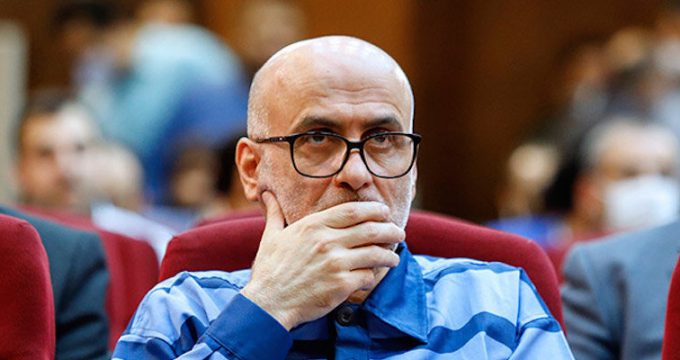June 25, 2021

Iran’s Judiciary says that 1,000 judges have been fired since the chairman of the Judiciary, Ebrahim Raisi, started his anti-corruption campaign in 2019.
The spokesperson for Iran’s Judiciary, Gholam-Hossain Esmaili, said the judges were fired after “periodic inspection” and a “specific review” of their court cases.
But he did not say what they were specifically fired for and whether any were sentenced to prison for misconduct or merely dismissed. He also did not indicate how many of those fired were senior judges as opposed to junior judges who just deal with minor offenses.
He did not say how many judges there are in Iran, so it is not known what proportion of the country’s judges has been let go.
Esmaili said the General Inspection Organization of Iran (GIO) had referred close to 3,000 cases of judicial misconduct to investigative committees in 2019, which resulted in the conviction of 3,000 persons by executive committees and another 500 individuals in courts.
According to Esmaili, 161 lawyers and judicial officers have also been arrested so far.
The center for the protection of judicial documents previously said that “28 staff” working in the Judiciary and “19 lawyers” had been arrested on a wide range of charges, including but not limited to “scamming” and “contacting individuals involved in a particular court case.”
Only one very senior official in the Judiciary is known to have been swept up in the anti-corruption drive so far, according to Kayhan London. In September 2020, a court convicted Akbar Tabari of “setting up and heading a bribery network” and “accepting bribes,” and sentenced him to 31 years in prison, and ordered him to pay nearly $1.6 million in fines.
Tabari served as executive deputy under Sadeq Larijani, the former head of Iran’s Judiciary, who was in office from 2009 until Raisi’s appointment in 2019.
Tabari was also given a 12-year prison sentence for “money laundering” and fined close to $2.3 million. Depending on the outcome of his appeal, Tabari will serve the longest of the two prison sentences, Esmaili said back in September. The court also ordered the seizure of some of Tabari’s assets and barred him from ever again holding a government job.
Tabari held several senior posts in the Judiciary. He served as the deputy in charge of administrative and financial affairs under Mahmud Hashemi Shah-roudi, the former head of the Judiciary, who was in office from 1999 until 2009. He also served as the head of the administrative affairs under Larijani before being promoted to the executive deputy.
At his arraignment, Tabari was formally charged with using his office at the Judiciary to influence financial corruption cases. He was accused of accepting bribes to block legal proceedings in several cases and even helping some defendants flee the country.
Several judges and Judiciary personnel were tried as part of the case against Tabari, Kayhan London reported.
Judge Gholamreza Man-souri, who was indicted as part of the case against Tabari, fled to Romania. He was accused of accepting 500,000 euros in bribes. In a video message recorded after he was indicted, Mansouri said he intended to return to Iran. However, his body was found in a hotel lobby in Bucharest last June. According to the Romanian prosecutor’s office, Mansouri had committed suicide by jumping off the 5th floor of the hotel where he was staying.
In September 2020, Iranian media reported that Judge Bijan Ghasemzadeh Sangroudi was convicted of “influence peddling” and “receiving bribes,” sentenced to 10 years in prison, and ordered to pay a fine. The court also ordered the seizure of some of Sangroudi’s assets and barred him from ever holding a government job. Judge Sang-roudi came to prominence during the 2019 nationwide protests when he ordered internet service providers in Iran to block access to the messaging platform Telegram.














